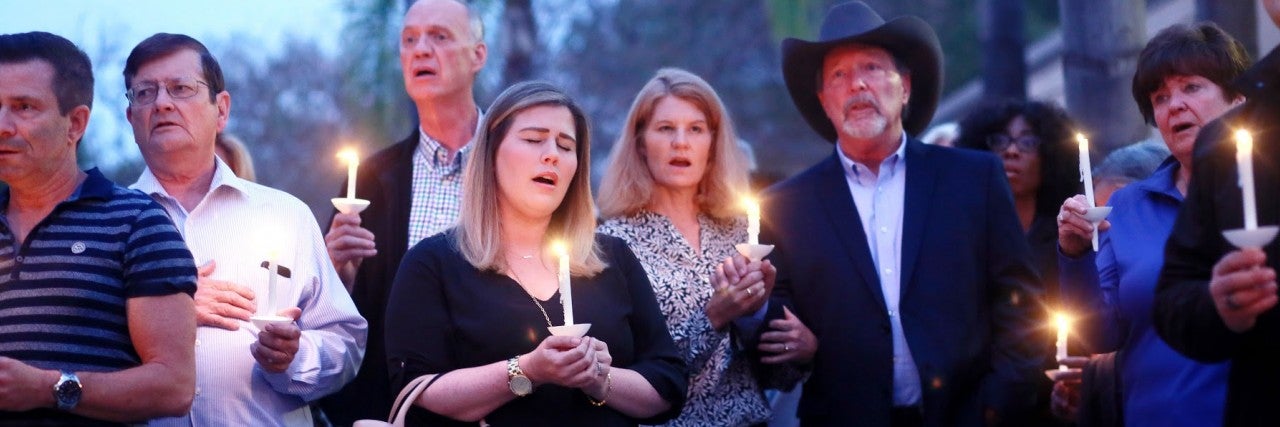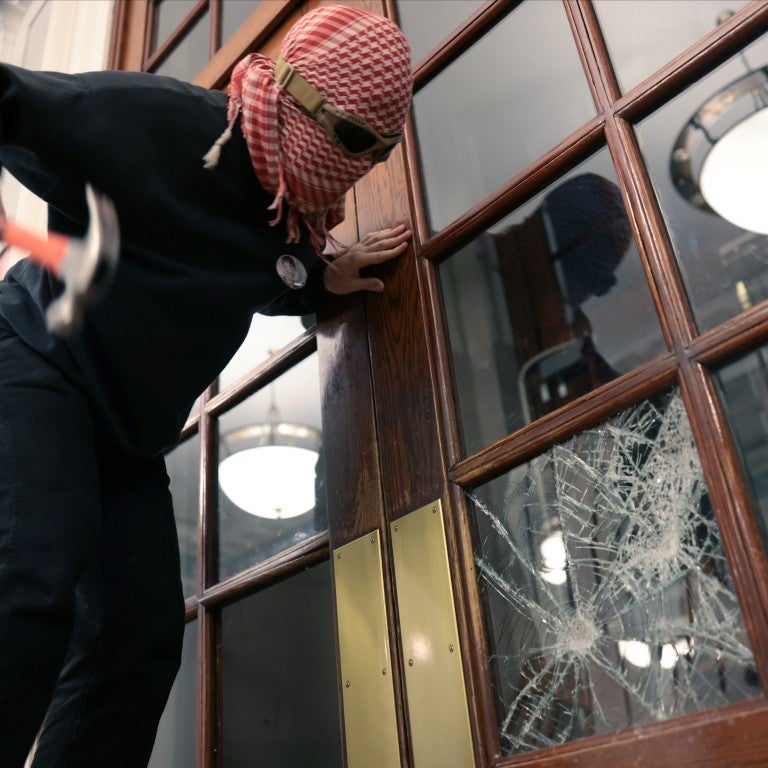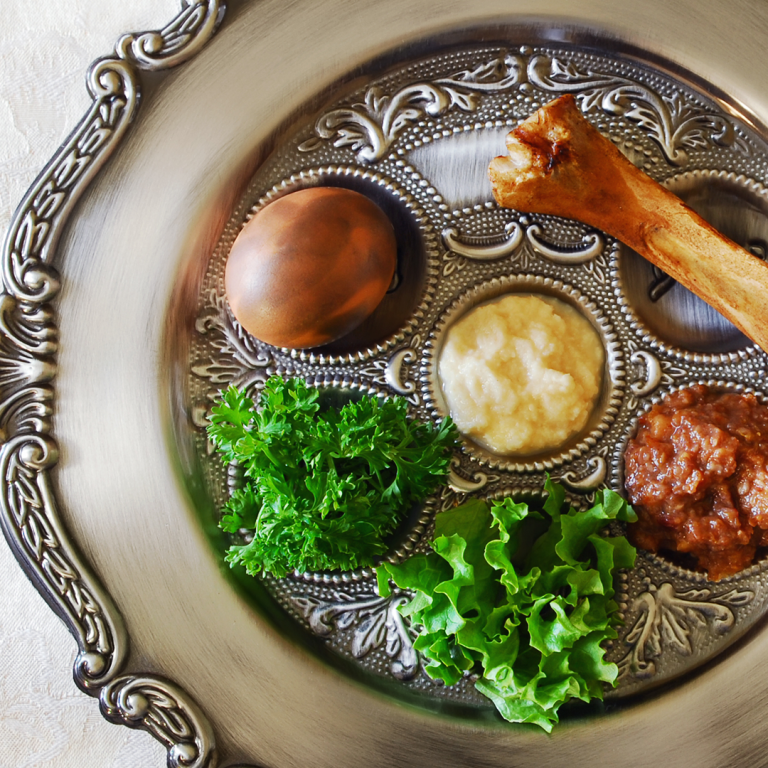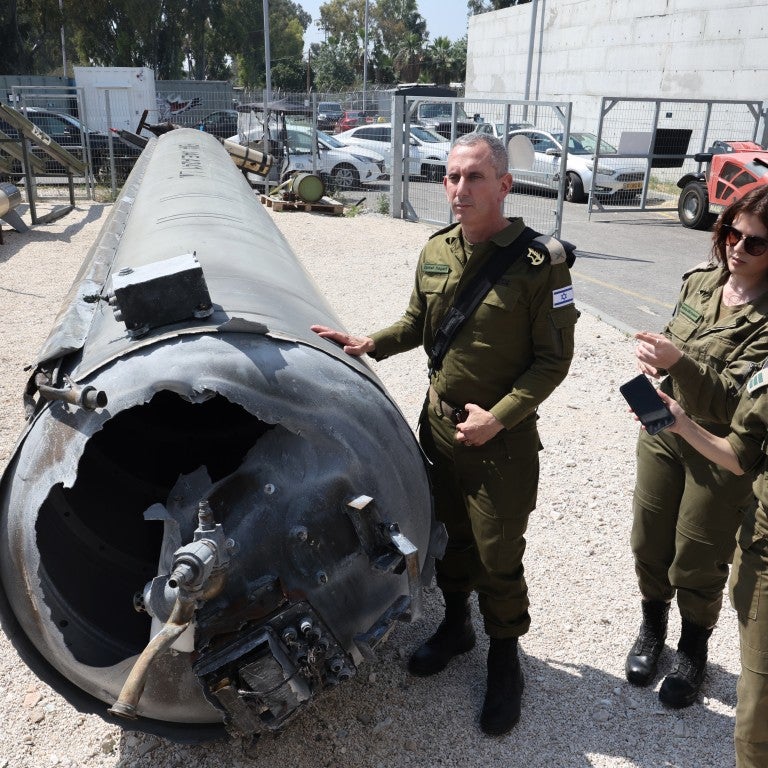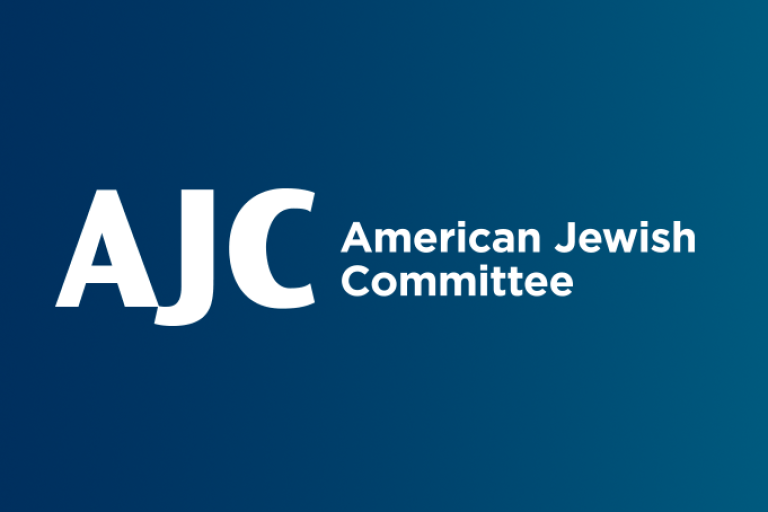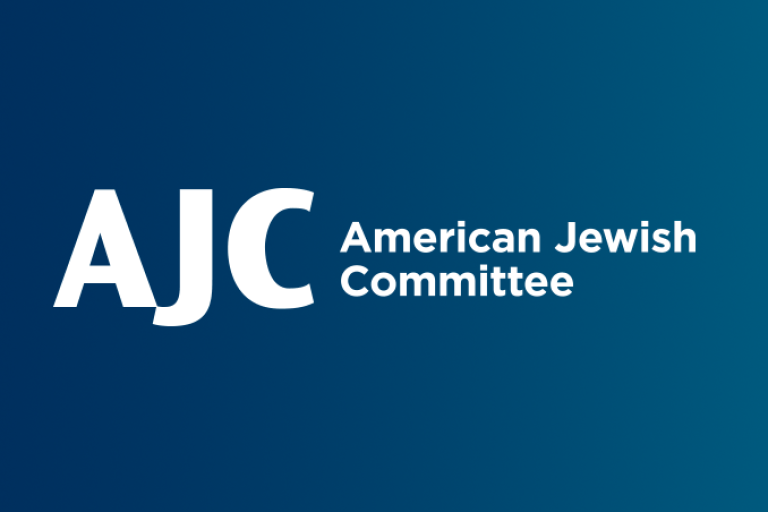April 22, 2021
On April 27, 2019, in the middle of Passover, a white supremacist burst through the doors of a Chabad synagogue in Poway, California and opened fire, killing congregant Lori Gilbert-Kaye and injuring three others. As we approach the second anniversary of the shooting, we speak to Mayor Steve Vaus, a Grammy-winning country music singer, who was serving his first term as Poway’s mayor at the time.
Then we’re joined by AJC Paris Director Anne-Sophie Sebban-Bécache to talk about the case of Sarah Halimi, a 65-year old French woman who was murdered in 2017 because she was Jewish. France's highest court has ruled that her killer will not stand trial due to his “delirious state” from smoking marijuana.
Listen to this episode on Apple Podcasts, Spotify, and Google Podcasts.
Episode Lineup:
- (00:40) Mayor Steve Vaus
- (15:32) Anne-Sophie Sebban-Bécache
- (19:02) Manya Brachear Pashman
- (22:15) Seffi Kogen
Show Notes:
One Candle by Steve Vaus
Episode Transcript
Manya Brachear Pashman (0:28)
Earlier this year, the US Conference of Mayors and American Jewish Committee invited mayors to unite to combat antisemitism. More than 550 mayors have signed that pledge with more trickling in each day. Some of those mayors have confronted violent antisemitism firsthand. On April 27, 2019, a gunman burst through the doors of a Chabad synagogue in Poway, California, killing congregant Lori Gilbert Kaye, and injuring three others. Mayor Steve Vaus, a Grammy Award-winning country music singer, was serving his first term as Poway's mayor. As we approach the second anniversary of the shooting, Mayor Vaus has joined us for a conversation about that tragic day. Mayor, thank you for joining us, and for sharing what I have to imagine was one of the most difficult days on the job for you.
Mayor Steve Vaus (1:27)
When something like this happens so close to home, it's seared in your memory. I will never forget that day. I don't think there's a day that goes by that in some form or fashion, I don't think of the Chabad, and what happened there.
Manya Brachear Pashman (1:45)
Where were you when you got the call that this had happened?
Mayor Steve Vaus (1:48)
We were on our way to a family outing. We had some relatives in from out of town, we're going to ride scooters, down to San Diego Harbor. And we'd just gotten on the interstate, about two miles from my home. And I got a call from our sheriff's captain, that there had been a shooting at the Chabad. Ironically, just maybe two months before the shooting. I had been at the Chabad to take part in an active shooter drill. But it was surreal, needless to say, when that call came. I knew immediately I had to turn the truck around and headed back home, changed clothes and headed over to Chabad.
Manya Brachear Pashman (2:29)
Why was the synagogue your first destination?
Mayor Steve Vaus (2:32)
I knew that we were in for a long haul over there, that there were a lot of people that would descend on Poway and the Chabad and I needed to be there to represent the community in an official capacity, but also to be there for the congregants at Chabad. The rabbi was a friend. And the early reports I heard were that the rabbi had been shot, did not know the severity of his injury at the time. So I was going there to really wear several hats. Friend, neighbor, and mayor.
Manya Brachear Pashman (3:04)
You know, I've read in interviews you did shortly after the attack that you felt like a minister in some cases, instead of a mayor.
Mayor Steve Vaus (3:12)
Growing up, my grandfather was a minister, my father was a minister, my three brothers are ministers, and I had always prided myself, on kind of being the black sheep in the family. But on that day, I discovered that sometimes mayors have to be ministers too. And I needed to get there and wrap my arms around the community, wrap my arms around the congregants at Chabad. And in a sense, it was a new role for me. Obviously, you never think anything like that's going to happen in your community. But you have to step up and take care of your friends and neighbors.
Manya Brachear Pashman (3:48)
Did you see this coming in any way, I mean, were there warning signs?
Mayor Steve Vaus (3:52)
I like to think of myself as an optimist. And if you had asked me on April 26, 2019, if something like this could ever happen in Poway. You have to understand, Poway is kind of like a Norman Rockwell town. I mean, we're a city of 50,000 people, but we're a small town at heart. And, you know, most everybody knows everybody in the community. We don't have divisions. And so that, and my optimistic nature, I never would have thought something like this could happen. Having lived through it, I now know it can happen anywhere. It's kind of like you can have the most beautiful green grass in the world in your front yard and all of a sudden, a weed's gonna pop up in the middle of it because it drops out of a bird's beak or whatever. It can happen anytime, anywhere, to anyone.
Manya Brachear Pashman (4:46)
Do you feel like in hindsight, there was anything that could have been done to prevent it, to prepare for it?
Mayor Steve Vaus (4:52)
No. I had been at the Chabad, just a couple months before, for an active shooter training for the congregants there. We had our sheriffs, deputies, and law enforcement specialists to tell them what to do if such an awful thing happened. So we were well prepared. And thank goodness that there were those among the congregants who challenged the shooter and chased him off. I am exceedingly thankful that there was someone there with a concealed weapons permit that allowed them to return fire and get him out of there. It could have been a just stupendously worse tragedy, but it was bad enough as it was.
Manya Brachear Pashman (5:34)
What prompted the active shooter training at Chabad two months earlier?
Mayor Steve Vaus (5:38)
It was Pittsburgh. And we are very proactive with public safety in Poway. We pride ourselves in being the safest city in San Diego County, one of the safest in the state, and I think in the top 100 in the nation. We take public safety and law enforcement very seriously. So as much as we operate believing that we are separate and apart from the violence that the rest of the world sees, you know, you hope for the best and plan for the worst.
Manya Brachear Pashman (6:05)
What did you learn about the Jewish community and Poway, and also about the threat of antisemitism?
Mayor Steve Vaus (6:12)
My Jewish brothers and sisters, I've never seen them as separate and apart. But I've also never fully understood, until the shooting, the fear that they live with, day in and day out. It was important to me afterwards, for them to know that this community was gonna stand with them. And we've continued to stand with them. I continue to be in constant touch with the leadership at Chabad and many of the congregants.
I want them to know that whatever they're feeling, whatever they're fearing, we're going to be there with them, and try and make sure that they are safe. You know, I think I tucked it into a day to day reality. I know that looking outside the sky is blue. I know that walking through the world, there are hate crimes. But that comes back to the, I just didn't think it was going to happen here in Poway. We're a Mayberry of sorts. But it... a painful way that it can happen anywhere, even in Poway.
Manya Brachear Pashman (7:13)
Did other houses of worship participate in that active shooter training?
Mayor Steve Vaus (7:17)
Yes, some others did. We have to remember, in recent years, you know, we've seen in Texas, there was an attack against a Christian church, in a small town. This world has just gone crazy. I think we spend far too much time condemning and confronting one another, and too little time, just having conversation with one another. It breaks my heart, the division that I see now. And I think, in a sense, and in these current times, many people are looking over their shoulders, wondering who's gonna come after them. It's a tragedy. And I'm not sure what we do to move forward. But whatever I can do as a leader, as a mayor, I'm going to be there for my community.
Manya Brachear Pashman (8:00)
What did you learn about yourself, about what it takes to be a mayor?
Mayor Steve Vaus (8:05)
I guess what I learned is that I had the capacity to be more than a mayor that makes sure that, you know, the sewer system is working, the sheriff's department is working, all that stuff. The job was bigger, but I was equipped. I think God equipped me to be able to handle the responsibility. I've always approached being mayor, you know, we're elected to be public servants. And gosh, darn it, you know, too many politicians that love to focus on the public part of being a public servant. I like to focus on the servant part. And I think that has prepared me well for my responsibilities.
Manya Brachear Pashman (8:42)
As you said, cities rely on mayors to keep city life going, to keep the sewers going, to keep the water clean. And I think a lot of mayors feel there really isn't time for politics. But it sounds like you share that sense, yes?
Mayor Steve Vaus (8:57)
Well, I think the closer you are to your constituents, in your day-to-day existence, the more that you understand that you're going to be held accountable. I have to go to the grocery store and buy milk and eggs and all that stuff. And I'm pretty recognizable. You know, we're a city of 50,000. But I think most folks know who I am. The cowboy hat might have a little something to do with it. But you are directly accountable as a mayor. When you run for state assembly or state senate or Congress or the United States Senate, you're an awful long way from your constituents during most of your working time. That's not the case with the mayor. So you better be there and be ready to address whatever the need is.
Manya Brachear Pashman (9:42)
We've talked about the impact this had on the Jewish community. How did this affect though, the community at large in Poway?
Mayor Steve Vaus (9:50)
In very obvious ways, people turned out, lined the streets with flowers, and notes posted on telephone poles. And things like that for our friends at Chabad. And I had a lot of people stop me and say: thank you for how you handled it. I felt like my community cared. We had, you know, I think two nights after the shooting, a gathering at our local high school, just three miles from the Chabad. We had probably seven to ten thousand people turn out to express their support, come together, in a sense, mourn together, but stand in solidarity with our Jewish brothers and sisters.
That's Poway. Poway has a history of coming together when we face challenges. When we've had wildfires coming over the hills, to the east of the city, our residents come together, you know, with pickup trucks and garden hoses to fight those fires as necessary. When we had a young girl go missing some years back, and we had thousands of people turn out to search for her. That's just the kind of community we are and I'm so blessed to be mayor of a community like Poway that takes care of one another.
Manya Brachear Pashman 11:03
How did this affect you personally, Mayor?
Mayor Steve Vaus (11:05)
Well, the enormity hit me right away. Again, the personal relationship with folks at the Chabad. This was not some, you know, anonymous synagogue or church. These are people that I knew. And I knew certainly, that there would be someone that I knew very personally, that was directly affected, the rabbi.
Manya Brachear Pashman (11:26)
Has Poway recovered?
Mayor Steve Vaus (11:28)
You know, I don't think you ever completely move on. It becomes a bruise on your heart, that will never go, but you rely on friends and neighbors, you rely on your law enforcement. You make sure that the folks at the Chabad or any other house of worship or any who have been feeling vulnerable, you make sure they know they can call you.
Manya Brachear Pashman (11:51)
The shooter John Timothy Earnest has yet to be tried, but has been charged with state and federal hate crimes. You made headlines early on by immediately calling it a hate crime.
Mayor Steve Vaus (12:03)
I'll never forget, my phone in the hours right after the shooting, just was ringing constantly. And I don't even know how all these different members of the media got my number. But I remember very clearly one call and I think it was from, you know, CBS Network. And it was maybe only an hour after the shooting. They said, well, "Was this a hate crime?" And it was before the law enforcement folks had spoken out and given any details and I said, "Of course it was a hate crime." Anytime anybody walks into a synagogue, intending harm against the congregants, that's a hate crime. And it was strange to me that that all of a sudden became a headline. You know, mayor says this is a hate crime, of course it was. Common sense has to prevail. It was kind of a defining moment for me that sometimes people just don't get it. This wasn't a guy going and holding up the gas station. He was intending to hurt our Jewish brothers and sisters. That's a hate crime. And I look forward to him feeling the full force of our judicial system in the coming days.
Manya Brachear Pashman (13:13)
As I said at the beginning, you are a Grammy Award-winning country musician, a children's country music musician, actually. Your stage name is Buck Howdy. So it's no surprise that this tragedy inspired you to write a song. Can you tell us about that song and how it came about?
Mayor Steve Vaus 13:28
The rabbi, in the aftermath, talked about, "Only light can drive out darkness," and so I wrote a song called One Candle, that picked up on that theme. And actually at the Christmas show that year, I had the rabbi come join me on stage as I sang the song. It was an emotional moment.
Manya Brachear Pashman (13:47)
I am sure it was. We are going to end with that song. Mayor Vaus, thank you for joining us for this conversation.
Mayor Steve Vaus (13:55)
When shadows come, when darkness falls. When all seems lost, with no hope at all. Light just one candle, drive out the darkness. Wherever you go. Lighting one candle, will push back the shadows. Imagine a million, which shine like the sun. Let this be the season, let love be the reason. The candles burn bright, let there be light, and pass it all.
Seffi Kogen (15:18)
Now it's time for our closing segment, Shabbat Table Talk, and joining us at our Shabbat table this week is Anne-Sophie Sebban-Bécache, the Director of AJC Paris. Anne-Sophie, when you're talking with your family at your Shabbat table this weekend, what are you going to be talking about?
Anne-Sophie Sebban-Bécache (15:32)
This Friday night Shabbat dinner, I will speak about Sarah Halimi's antisemitic murder. I will think about her brother and sister who have been deprived from justice. I will think about Sarah's memory during the prayers. Sarah Halimi was a retired French physician and schoolteacher. She was also an Orthodox Jew. On April 4, 2017, she was in her Paris apartment, where she lived alone. In the middle of the night, her neighbor Kobili Traoré broke into her apartment. He tortured Mrs. Halimi, who was in her 60s, beating her and kicking her. According to neighbors who called the police after hearing Halimi's cries, Traoré called her a Shaitan, meaning a devil. Ultimately, Traoré threw Mrs. Halimi's battered body out of her third-story apartment window, shouting "Allahu akbar."
The antisemitic nature of the crime was retained by the courts. However, based on several expertise, the investigating judges, and then the Court of Appeal dropped the murder charges against Traoré on the grounds that he was insane at the time of the crime. Smoking marijuana partially or totally, experts actually diverged on their conclusions, caused him to have a massive psychotic episode. Last week, the Supreme Court of Appeal, we call the Court of Cassation upheld the earlier decision that Traoré cannot be held criminally responsible. There will be no trial. We are shocked and disgusted.
Several questions deserve to be asked, given the complexity and the differences between them. What appropriate weight should experts have in the judge's decision? Does this decision create a dangerous, what we call jurisprudence, exonerating criminal responsibility by the deliberate use of drugs. Will a change in the law, as President Macron suggested to the Minister of Justice last weekend, really solve our problem?
These are very valid questions which have no simple answers. But here's probably the most important question of all. The emotion and anger we can feel and observe, speaks for something deeper. It speaks for exasperation. It speaks for 20 years of our increasing fear and despair, observing a steady rise of antisemitism in our country, in France. It speaks for a feeling that impunity still reigns. In France, there is this sacred principle which we all understand the necessity to preserve. We don't judge insane people. But isn't it time for friends to finally judge antisemitic madness? Isn't it time for the French justice to put antisemites in front of their delirious, murderous hatred?
Most of Jewish organizations including AJC Paris, and beyond, many French citizens, call for rally in Paris on Sunday. There will be other rallies in France, but also beyond, in Tel Aviv, in front of the French embassy, in London, in Miami, in front of the French consulate, and today in New York and Los Angeles in front of French consulates as well. And I invite all our listeners today to share the news widely. Our call for justice is universal.
Manya Brachear Pashman (18:54)
Thank you Anne-Sophie, my heart goes out to the Halimi family. It is really quite a miscarriage of justice.
At our Shabbat table, we will be talking about Jewish geography. No, not the who-do-you-know game that's come under fire for making Judaism seem too cliquish. That conversation is for another time. I'm talking about an article in The New Yorker this week by Laura Moser, who, after years of being involved in American politics, even running for Congress in her hometown of Houston, moved her family to Berlin last year. The city her grandfather had fled two months before Kristallnacht. Why? As a Jew, she no longer felt safe in America. But to your point Anne-Sophie, is her family really safer in Europe? Is her family safer in Germany where a man fired at the doors of a synagogue during Yom Kippur services or, Europe aside, would her family be safer in Argentina, where in 2019, the chief rabbi, like Sarah Halimi, was beaten in his home by a nighttime intruder. Unlike Sarah Halimi, he survived.
Where is it safe to be Jewish? How do we make it safer? These are the questions of Jewish geography that I contemplate. Moser obtained a German passport when she was 21, when Germany was restoring nationality to the descendants of the Jewish citizens who had been forced out by the Nazis. She had no intention of leaving at that time. But as she watched and experienced the country's social safety net gradually falling apart, she began to explore solutions. She ran for office, only to be criticized by her own political party for some of the same issues in Israel that she found troubling. Only she held Israel's government accountable, not an individual American Jew.
Moser writes, "I became quietly obsessed with the slippery ways that antisemitism sneaks into our discourse, and how unmentionable it is. Jews had silver spoons in their mouths and money trees in their yards. They grifted and they stole," she writes. Her Jewish friends, and her own father, are befuddled when she announces the move. Berlin? Couldn't her family go somewhere else? When she gets to Berlin, she finds security guards stationed outside synagogues and German Jews at protests against coronavirus restrictions with signs reading, "Against All Antisemitism," a plea not to blame the Jews. Again. Moser points out that Germany can look to its history and has built in safeguards for the Jewish community.
I was deeply moved by Moser's decision and her peice, even if I disagreed with some of her points. It reminded me why AJC does what it does around the globe. Many of those safeguards in Germany exist because AJC opened an office in Berlin when all other Jewish organizations looked askance, much like Moser's Jewish friends. And Anne-Sophie, we know how hard you're working to make things safer in France. I have not lost faith in America. Earlier this month, AJC led a successful effort to get a bipartisan bill proposed in both the House and the Senate. The Jabara-Heyer NO HATE Act aims to better track and curb hate crimes in all 50 states. In an unheard of 94 to one vote, the Senate passed it Thursday. And why does AJC fight so fervently for Israel. So our families will have a place to go if we ever again need to flee. It is a crucial piece of Jewish geography. Seffi, what's on your mind?
Seffi Kogen (22:14)
Thanks, Manya. Maybe because we have Anne-Sophie with us, I'm thinking about Europe. For the past couple of years, I've been working my way slowly but surely through a fun project, or at least something that I consider fun: reading one biography for each US president. I have gone in order, though before beginning I had already read The Magisterial Years of Lyndon Johnson by Robert Caro, and Truman by David McCullough. So having started with Washington by Ron Chernow, I'm now, I'm now on Colonel Roosevelt, the third part of Edmund Morris's three-part biography of Theodore Roosevelt, our 26th president.
But wait, you're thinking, didn't Seffi say that he was thinking about Europe? Why is he telling us about his reading list and coming dangerously close to American historical pedantry? Well, the crazy thing about Colonel Roosevelt is that it actually begins after TR completed his second term as president. He's on safari in Africa, with his son Kermit, shooting thousands of animals on a research expedition for the Smithsonian, some specimens of which even today are on display at the Museum of Natural History in New York. On his way home, he cruises up the Nile and then arrives for a grand tour in Europe. Now TR was insanely well traveled as a boy and a young man, so he's no stranger to Europe. But he arrives there now in 1910, as the most famous man in the world. He's just served nearly eight years as president, he's been far and away the most active president in American history on foreign affairs, and just a few years earlier, he was awarded the Nobel Peace Prize for his work ending the Russo-Japanese War, becoming the first American to win it.
And here's why I'll be talking about Roosevelt's Europe trip at my Shabbat table. One of the delights of this biography quest is seeing all the little and not so little ways in which US presidential history intertwines with Jewish history. Sometimes it's obvious as when Harry Truman recognized the State of Israel in 1948. Sometimes it's less so. It's not so commonly known that Ulysses S. Grant tried to expel Jews from the territory he oversaw as a general during the Civil War. But it's even less known that he atoned for this as president by appointing dozens of Jews to federal positions long before it was common for Jews to be seen as fit for civil service roles, by speaking out against antisemitic pogroms in Russia and Romania, and by spending three hours three hours of his presidency at the dedication of Adas Israel congregation, a synagogue in Washington DC.
So, though I already knew that Roosevelt had sought to protect Jews after the Kishinev pogrom in 1903, I was delighted to learn in this book about Roosevelt's joy during that 1910 tour at discovering that Rome, the seed of the Catholic Church was then led by a Jewish mayor. And what's more, all of Italy was led by a Jewish Prime Minister. Manya,. speaking of Jewish geography, I don't think I went to camp with either of those men. TR also went on to Germany, where he spoke in front of rabid antisemite, Kaiser Wilhelm II, about his personal admiration for the Jewish people. Within five years, less than that, Europe would deteriorate into World War I. It was already sliding precipitously toward that calamity, and that of World War II and the Holocaust. But, there was Teddy talking about his admiration for the Jewish people.
That's one of the things that delights me so much about this reading, is seeing all the ways in which Jews just happened to come up. Now, look, maybe it's because so many of the historians who wrote the books are Jewish, or are kind of surrounded by Jews. But there we are, we keep coming up time and again. So it's my pleasure to share this now with People of the Pod. I will certainly be talking about it at my Shabbat table. And if there's any other fun factoids that come up on a week where I have nothing else to talk about, you can expect perhaps, to hear more from me about American presidential history, and the Jews. Shabbat Shalom.
Manya Brachear Pashman (26:19)
Shabbat shalom.
Anne-Sophie Sebban-Bécache (26:20)
Shabbat shalom.
